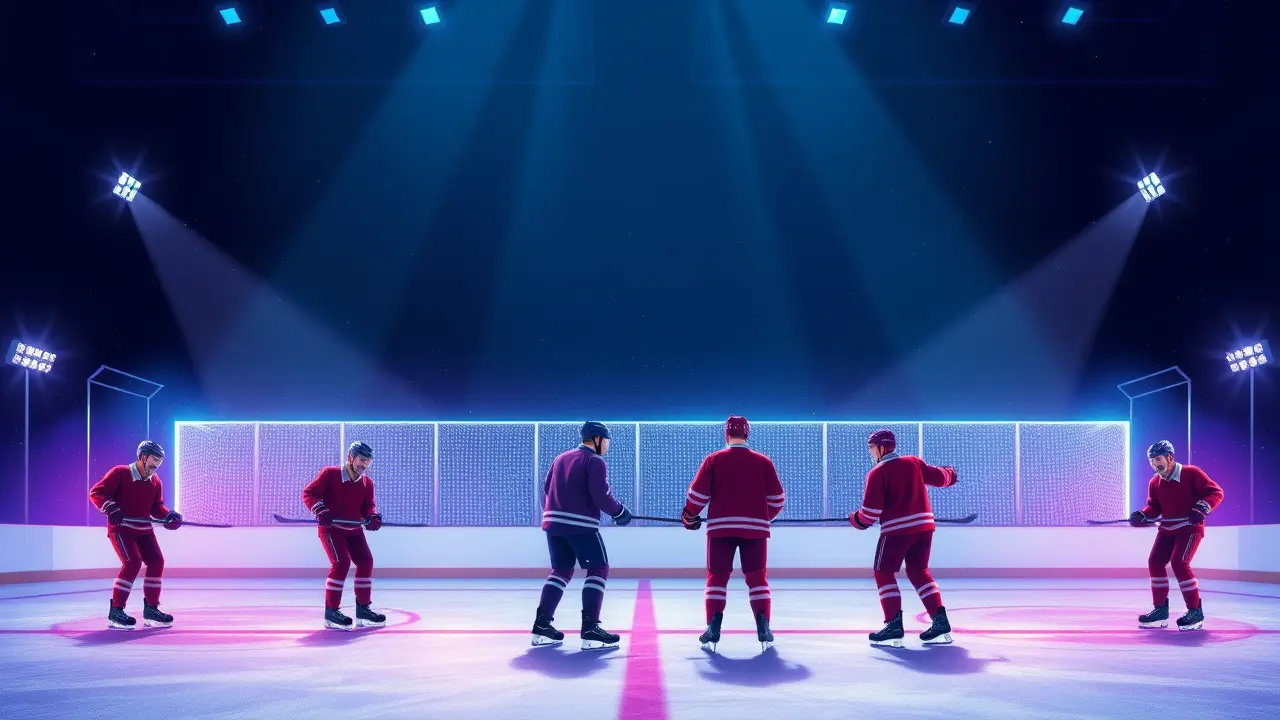Rotenberg on cooperation with Kremlev: Car giveaway and new ice rink.
In a move that signals a powerful alignment of commercial muscle and sporting ambition, the Russian Hockey Federation has inked a significant partnership with the ROLF Group of Companies, a deal sealed by two of the nation's most prominent figures in their respective arenas. Roman Rotenberg, the first vice-president of the FHR and head coach of the 'Russia 25' national team, stood alongside Umar Kremlev, the formidable businessman and President of the International Boxing Association, to formalize an agreement that transcends mere sponsorship.This isn't just another corporate logo slapped on a jersey; it's a strategic play, reminiscent of the kind of foundational partnerships that built European football dynasties, where a deep-pocketed benefactor becomes synonymous with the sport's growth. The immediate, headline-grabbing takeaway is the promise of a car giveaway for spectators at the upcoming Channel One Cup, a classic fan-engagement tactic that, while flashy, underscores a broader, more substantive commitment to the grassroots of Russian hockey.The core of the collaboration is a pledge to construct a new ice rink in Serpukhov, Moscow Region, a critical piece of infrastructure that addresses the perennial challenge of accessibility. For decades, the development of winter sports in Russia has been hampered by a lack of quality, affordable facilities outside major metropolitan centers, creating a bottleneck for talent identification.This initiative, therefore, is not just about pouring concrete and installing cooling systems; it's about building a pipeline, a farm system that can consistently feed the national program with homegrown stars, much like the famed Soviet sports schools of the past but with modern, corporate efficiency. Furthermore, Rotenberg's explicit commitment to providing free equipment for young players is a direct assault on one of the most significant barriers to entry in an expensive sport like ice hockey.This echoes the philosophy of clubs like FC Barcelona's La Masia, where the focus is on nurturing talent from a young age, removing socioeconomic hurdles to ensure that the next Alexander Ovechkin isn't lost because his family couldn't afford skates. The involvement of Umar Kremlev, a figure known for his assertive leadership at the IBA, adds a fascinating layer of geopolitical and sporting intrigue.His patronage suggests a model of development that blends private enterprise with national sporting objectives, a trend increasingly visible in a global sports landscape where traditional funding models are being disrupted. The long-term implications are profound.Should this partnership prove successful, it could establish a blueprint for other Russian sports federations struggling for funding in a challenging international climate. It represents a pivot towards self-reliance, creating a sustainable ecosystem less dependent on volatile international sponsorships or federations.However, the path forward is not without its potential pitfalls. The success of such infrastructure projects often hinges on local government cooperation and long-term maintenance, and the focus on a single region, while positive, raises questions about a nationwide rollout. The true test will be whether this partnership can deliver consistent, measurable results over the next five to ten years, transforming the initial excitement into a lasting legacy that elevates Russian hockey from a perennial powerhouse to an unstoppable, self-sustaining force on the world stage, proving that in the high-stakes game of sports development, the most significant victories are won not just on the ice, but in the boardrooms and construction sites that build the future.
Latest News
The charts are whispering what the true believers have felt in their bones for weeks—Dogecoin is carving out a bottom.
17 hours ago5 comments
The Institute for Fiscal Studies has thrown a stark warning onto Rachel Reeves's desk, urging the Chancellor to confront a potential £22 billion shortfall in
17 hours ago3 comments
Alright, let's break down this absolute heater of a performance from the Chicago Blackhawks, because if you missed this one, you missed a party.
18 hours ago5 comments
The ice was hot last night in the NHL, folks, serving up a slate of games that felt less like a regular season Tuesday and more like a playoff preview with a
18 hours ago3 comments
The XRP chart is painting a tantalizing picture for those with the stomach to withstand the relentless pressure from crypto's leviathans.
18 hours ago4 comments
It’s in the small shifts, the quiet recalibrations of a Thursday morning, where the most meaningful change often takes root.
18 hours ago4 comments
In a move that sent ripples of quiet confidence through the crypto ecosystem, blockchain intelligence firms tracked a monumental treasury allocation from
18 hours ago4 comments
In a move that would have drawn a nod of approval from historical figures like Churchill, who understood the delicate balance of power within democratic
18 hours ago2 comments
MI
Mikhail Volkov123k10 hours ago
sounds promising tbh but we've seen big announcements like this before, wait and see if the rink actually gets built
0
JA
Jamie Lawson123k22 hours ago
wait but is building one rink really enough to fix the whole system idk seems like a nice gesture but maybe just a drop in the bucket tbh
0
JA
Jamie Larson123k1 day ago
wow building a whole new rink is so cool meanwhile i can't even get my act together to clean my gutters 😅
0
